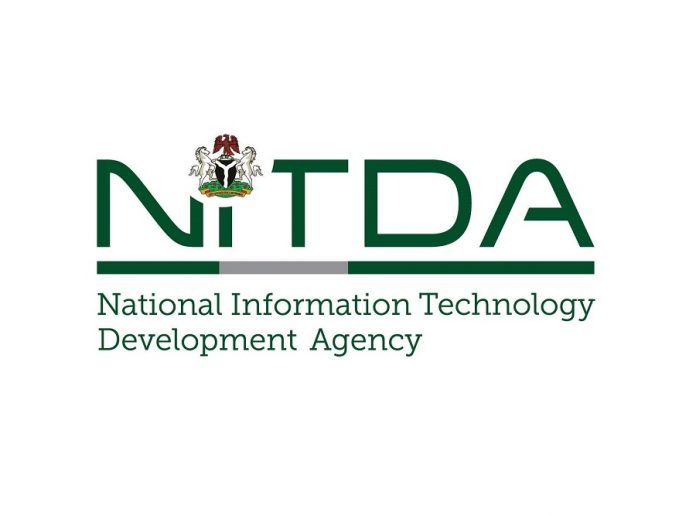FEATURE: Growing Startup Ecosystem with NITDA’S Consultative Forum By Fatimah Yusuf Usman,
On April 28, 2025, Nigeria’s digital economy will witness a landmark event as the National Information Technology Development Agency (NITDA) launches the inaugural Startup Consultative Forum.
This forum, set against the backdrop of the Nigeria Startup Act (NSA), promises not just to be another gathering, but a turning point in Nigeria’s journey towards a thriving, inclusive, and innovation-driven startup ecosystem.
For years, Nigerian startups have contended with barriers — unclear regulations, limited access to funding, and a lack of representation in policy-making discussions.
The Consultative Forum presents a solution to these issues, offering an unprecedented opportunity for tech founders, investors, and ecosystem enablers to engage directly with policy development. NITDA’s initiative is designed to bridge the gap, allowing the country’s entrepreneurial ecosystem to shape the policies that affect them.
At the heart of the Forum’s agenda lies the election of representatives for the National Council for Digital Innovation and Entrepreneurship — the Startup Council. This body, the highest advisory body under the NSA, will guide Nigeria’s digital future.
Through this forum, stakeholders won’t simply react to government policies; they will actively influence their formation. This is a crucial step in ensuring that Nigeria’s digital economy thrives in a way that benefits all players, not just the policymakers.
Ahead of the Forum, NITDA has emphasized that the platform is open to verified startups, innovation hubs, angel investors, venture capitalists, and other relevant entities, all of whom are encouraged to participate.
This is not just a chance to engage in dialogue, but an opportunity to vote for representatives who will advocate for collective priorities in the future of Nigeria’s startup ecosystem.
This consultative approach marks a significant shift towards a more inclusive form of governance, one where entrepreneurs, innovators, and investors are empowered to shape policies that directly impact them.
In a nation where digital entrepreneurship has become a lifeline for tackling unemployment, this is more than just a meeting — it is a call to action. It recognizes that sustainable growth cannot happen without input from those on the ground, building solutions and driving progress.
Necessity of Inclusive Policy-Making
Inclusive policy-making is no longer optional — it is a necessity. For too long, policymakers have created regulations without fully understanding the challenges faced by entrepreneurs in the startup space.
The Forum addresses this by providing a platform where the voices of those building solutions can be heard and reflected in national policy. It ensures that entrepreneurs no longer operate in isolation but are an integral part of the policy-making process.
This approach signals to the tech community that their input is vital in shaping decisions about tax structures, intellectual property laws, funding, and regulatory frameworks. For Nigeria’s startup ecosystem to thrive, policies must be informed, responsive, and dynamic.
A collaborative, inclusive process like the one NITDA is championing is the only way to ensure that innovation remains at the heart of the country’s development.
Structure and Legitimacy as a Pathway to Growth
Startups, especially those with great potential, often struggle due to policy uncertainty or a lack of institutional backing. The establishment of the Startup Council marks a pivotal moment in addressing this issue.
Rather than operating in an ad hoc manner, decisions that affect the future of innovation will now be made based on consensus and legal backing. This creates a solid foundation for sustainable growth.
The Startup Council will give Nigerian startups an official voice in national policy. This marks a significant step towards institutionalizing the startup ecosystem, providing the structure needed to ensure that the sector receives the support it deserves.
Through this Council, startups will be able to advocate for themselves, pushing for regulations that foster growth rather than stifle it. By offering startups a framework for sustained support, NITDA is laying the groundwork for a future where Nigerian innovators are not only local heroes but global competitors.
This institutionalization is not just about creating space for startups — it is about ensuring that Nigeria’s entrepreneurial ecosystem becomes a driving force in the global digital economy.
A Model for Cross-Sector Collaboration
NITDA’s approach to governance is something to be admired. It is a collaborative, dialogue-driven process that serves as a model for other sectors. In many countries, successful economic development is built on meaningful collaboration between government and private enterprise.
This initiative shows that Nigeria, too, can foster an environment where government-business relations are not antagonistic but synergistic.
The Forum’s inclusivity also highlights the importance of cross-sector partnerships. Investors, entrepreneurs, and policymakers must come together to shape a future that benefits everyone.
The consultative model ensures that all voices in the startup ecosystem are heard and valued, reinforcing the idea that only by working together can Nigeria’s digital economy reach its full potential.
If successful, the Startup Consultative Forum could become a recurring event, offering the government a continuous platform for meaningful engagement with Nigeria’s brightest minds.
This would be a step towards a future where policies are not just made in government offices but are co-created with the people who know the sector best.
A New Era for Nigeria’s Digital Economy
As the date approaches, anticipation is building for what could be a defining moment for Nigeria’s startup ecosystem. The Startup Consultative Forum is not just an event on a calendar; it represents a new era.
One where those building Nigeria’s digital future are not just recipients of policy, but active contributors to the systems that support them.
For Nigeria’s tech ecosystem, the Forum offers the promise of a more vibrant, responsive, and sustainable future — one where collaboration between government and the private sector is not a hopeful vision, but a thriving reality.
Fatimah Yusuf Usman writes from the PRNigeria Centre, Abuja. She can be reached at: [email protected].
















